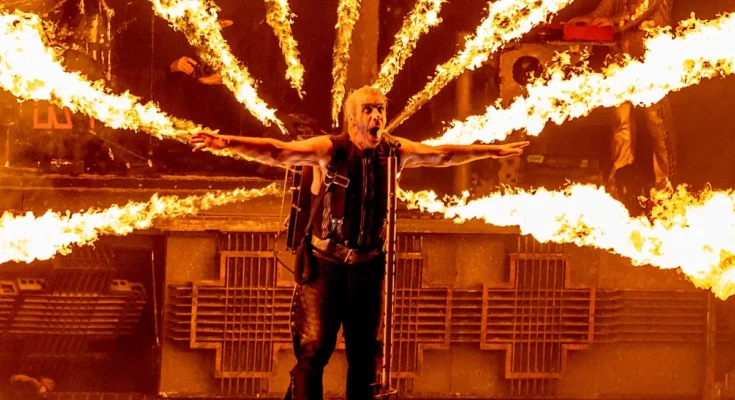Healey and Shmyhal talk about getting ready for the upcoming Rammstein meeting in September.
Ukrainian Defense Minister Denys Shmyhal discussed preparations for the next meeting in the Rammstein format with his British counterpart John Healey.
“The meeting will take place in September. We coordinated the main positions. I thanked Britain for the active preparation and organization of the meeting,” Shmyhal wrote on the Telegram channel.
In addition, the parties discussed the development of joint production and the implementation of bilateral projects in the defense industry.
“We expect that the UK will play an important role in the new US-NATO Prioritized Ukraine Requirements List (PURL) mechanism,” Shmyhal noted.
He thanked British partners for the high level of support and involvement in strengthening the security of Ukraine and Europe.
The Rammstein meetings, named after the U.S. Air Base in Germany that serves as the symbolic and operational heart of the coalition’s discussions on Ukraine, have become a recurring platform for key defense ministers and officials to coordinate military aid, security strategies, and long-term commitments to supporting Kyiv against Russian aggression. Each meeting is not just a diplomatic ritual but a practical step toward ensuring that Ukraine has the resources, intelligence, and support it needs to sustain its resistance and push for eventual victory. For Healey and Shmyhal, the September session offers an opportunity to align strategies, secure additional commitments, and remind the world that the coalition of allies stands united.
Their preparatory talks are vital because the geopolitical context continues to evolve. Over the summer, Ukrainian forces have continued operations aimed at holding ground, fortifying positions, and countering intensified Russian offensives. Meanwhile, Western partners have grappled with the dual challenge of sustaining military assistance while balancing domestic political pressures and competing priorities. In the UK, debates around defense spending and international commitments remain part of the political discourse, while in Ukraine, the focus is on survival, recovery, and long-term security guarantees. In this environment, preparatory discussions between leaders like Healey and Shmyhal carry weight. They allow allies to coordinate messaging, refine expectations, and enter the September meeting with a united front.
For Shmyhal, Ukraine’s Prime Minister, the stakes are clear. Ukraine’s resilience on the battlefield depends heavily on external support. Advanced weapons systems, air defense capabilities, long-range artillery, and logistical backing remain critical. But beyond the hardware, there is also the need for training, intelligence sharing, and sustained political will among allies. In engaging with Healey, he seeks not only reaffirmation of the United Kingdom’s role as one of Ukraine’s staunchest supporters but also a strategic alignment on how to present Ukraine’s needs to the broader coalition in Rammstein. The task is to ensure that Ukraine’s case remains compelling and urgent, cutting through the noise of other global crises that may compete for attention.
Healey, meanwhile, approaches the conversation with a recognition of the UK’s unique position. Britain has consistently been among the leading European nations in providing military assistance to Ukraine, from supplying anti-tank weapons in the earliest days of the invasion to delivering advanced air defense systems and training thousands of Ukrainian soldiers on British soil. For Healey, preparation for Rammstein is not only about reaffirming the UK’s commitments but also about shaping the broader NATO and European conversation. Ensuring that allies remain steadfast, that no cracks appear in the coalition, and that the message to Moscow remains one of unity and determination is a central priority.
The upcoming Rammstein meeting is expected to address several key issues: reinforcing Ukraine’s air defenses in the face of continued missile and drone strikes, evaluating the pace and scope of ammunition and artillery deliveries, and discussing longer-term security guarantees. The latter, in particular, has become an increasingly important theme. Ukraine has long sought assurances that its sovereignty and territorial integrity will be defended not only during the present conflict but also in the years to come. With discussions of eventual NATO membership still delicate and contested, the Rammstein platform offers a chance to explore interim measures—binding commitments from allies that can bolster Ukraine’s security architecture.
The significance of Healey and Shmyhal’s preparatory talks lies not just in the details of weapons systems or timelines for deliveries, but also in the tone and unity of messaging that they can bring to the larger forum. The optics of allies working closely behind the scenes convey strength and solidarity, something that resonates not only in Kyiv but also in Moscow. The Kremlin watches these developments closely, gauging the level of Western resolve and seeking opportunities to exploit divisions. Thus, ensuring that the September meeting delivers a clear and united outcome is itself a form of strategic deterrence.
In addition to military matters, economic and humanitarian considerations are also likely to feature in their discussions. Ukraine’s economy has been battered by the war, with infrastructure damage running into hundreds of billions of dollars. Reconstruction is not a distant issue but an immediate concern, as communities seek to rebuild even amidst the conflict. Shmyhal has consistently emphasized that international support must extend beyond weapons, encompassing financial aid, reconstruction plans, and pathways for Ukraine’s eventual integration into European structures. By aligning with figures like Healey, he seeks to ensure that the narrative in Rammstein includes not only military resilience but also the vision of a future Ukraine that is secure, prosperous, and fully integrated into the Western family of nations.
Healey, for his part, recognizes that public opinion in allied countries can be a limiting factor if not carefully managed. As months turn into years, sustaining public support for aid to Ukraine requires constant engagement, explanation, and storytelling. The Rammstein meeting is as much about sending a message to domestic audiences as it is about coordinating international policy. Demonstrating that support for Ukraine is not an open-ended drain but a vital investment in global security and stability is part of the task at hand.
As the September date draws closer, the significance of these preparatory talks becomes increasingly apparent. Healey and Shmyhal represent two sides of the same struggle—one the supporter, the other the nation under siege—but both share a commitment to ensuring that the alliance remains strong. Their conversations are not simply logistical but deeply symbolic, underscoring the sense that Ukraine’s fight is not its own alone but one shared by democracies determined to resist aggression and uphold international law.
In the end, the Rammstein meeting in September will likely be remembered as another chapter in the ongoing story of international solidarity with Ukraine. What will make it impactful is not only the specific commitments that emerge but also the sense of unity and purpose that allies project. By talking now, by aligning strategies and expectations, Healey and Shmyhal are ensuring that when ministers and officials gather in Germany, they do so with clarity, confidence, and determination. The fire of resistance continues to burn in Ukraine, and with allies preparing carefully in advance, the Rammstein meeting promises to provide the fuel that keeps that flame alive.



